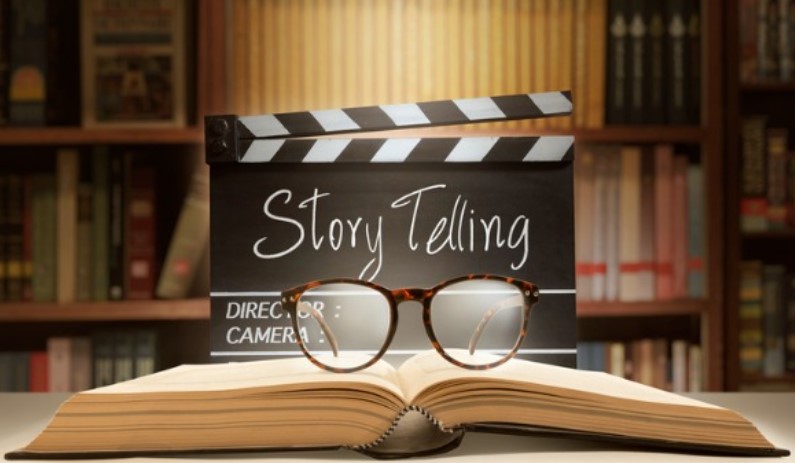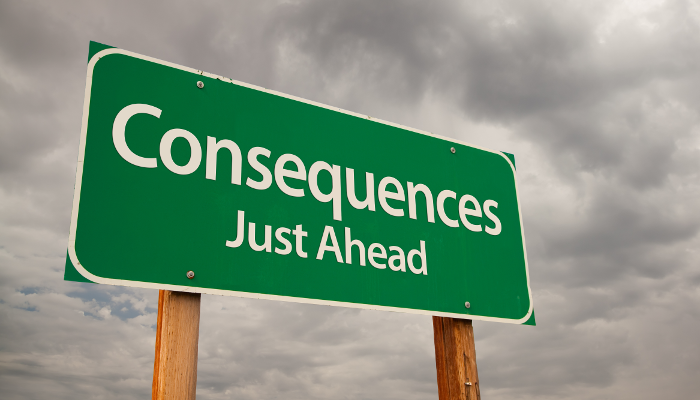How To Make Better Decisions
By Avoiding The Narrative Trap
To understand the truth we have to look at all the known facts, and see the whole picture which is often not as binary as presented.
One of the best ways to make better decisions is to have a deeper understanding of the many things that might stop that happening.
We are far less rational than we like to think we are and we sabotage our thought processes by falling victim to our cognitive biases, our limited attention spans, and our tendency to overestimate our abilities
in areas that are outside our circle of competence.
In this article we are going to focus on another often overlooked factor, and that is the stories that we tell ourselves, the narratives that we weave, and to look closely at how we can avoid what is referred to as the narrative fallacy.
Why Story Telling Is A Terrible Way To Make Better Decisions

We are hard wired to tell stories and these stories are our way of trying to find meaning
in what so often feel likes a random, chaotic and meaningless universe.
Psychologists have developed a theory about this called narrative theory which offers an explanation as to how we construct our identities through storytelling.
The human brain has evolved a wide range of modules which filter,
interpret and explain and interpret what's going on in the world around
us and all with the primary purpose of helping us to survive.
There is module in our brains that seeks explanations and establishes causality - or what it thinks is causality.
Neuroscientist Dr. Michael Gazzaniga describes this module as The Interpreter as it seeks explanations and explains causality in what is happening in the events that we see and experience, and it then provides us with a plausible end to end narrative of what has happened and why.
Cause & Effect Explanations
The interpreter is constantly spinning stories and supplying causal explanations to the data it’s being fed; doing the best job it can with what it’s got to keep us alive and reproducing.
This may make
you feel safe and in control, but it is so often wrong and it causes you to make sub-optimal decisions to which you are oblivious until you reap the consequences.
Falling Victim to The Narrative Fallacy
This means that we fall foul of the narrative fallacy.
This can best be described as a reverse mirror mental trap that causes us:
- To sequence things in a straight line.
- To establish a set of cause-and-effect links to our knowledge of the past.
As Nassim Taleb points out: we are overwhelmed with so much sensory information that our brains have no choice but to put things in a sequenced order and our brains operate as a linear scanner. This is the only way that we can process the world around us.
The Filter of Beliefs and Cognitive Biases
The difficulty with narrative is that it fools us into believing that we can explain the past through cause-and-effect when we hear a story that supports our prior beliefs and we become subject to confirmation bias.
For example, stories of individual success in the fields of sport or business resonate with readers by offering what the human mind needs: a simple message of success and failure that identifies clear causes and ignores the determinative power of luck and the inevitability of regression.
These stories may serve many wonderful functions: teaching, motivating, inspiring but the problem is that we too often believe that these stories are predictive.
Hijacking
Gazzaniga describes the way in which our brains can be tricked and manipulated as“hijacking”.
When this happens it leads to strange explanations and bad decisions. This is evidenced in much of the ridiculous behavior and stupid narratives we see around us.
Your brain can be hijacked in so many ways, for example it:
- Gets sabotaged by your lizard brain
- Falsely attributes cause and effect
- Falls for the narrative fallacy
- Buys into redemption narratives
- Is subject to survivorship bias
- Fails to spot inflection points
- Ignores regression to the mean
- Gets suckered into group think
- Is subject to a very wide range of cognitive biases
- Is limited by your conscious and unconscious beliefs
Fake Narratives
The collective and cumulative impact of hijacking is what causes the tsunami of fake narratives that pour out of multiple social media channels 24/7 and that influence so many already biased minds into dark areas without any direct responsibility.
Anonymously, we are shown "facts" that we want to believe and share in order to feed that hate, to propel that anger.
This failure to see the whole picture, in many cases this failure to even realise that there is a bigger picture, leads so many people to seeing things in simplistic binary terms.
Our paleolithic ancestors, believed what they saw. But with the evolution of language and more sophisticated cognitive capabilities modern people believe what they hear.
We no longer see and believe, we hear and conclude - but without checking the facts.
The Tyranny Of The Intolerant Minority
The compound effect of all of these issues has led to the phenomena of the "Tyranny Of The Intolerant Minority" which occurs when an intolerant minority is present in a
society where the majority are flexible and accommodating, and have no
strong values-based leadership.
What happens is that the flexible, tolerant majority accept the intolerant
minority position but the intolerant minority do not reciprocate.
The outcome of this is that rather than the minority being assimilated into the flexible majority, the flexible majority become assimilated into the inflexible minority and the majority of us become ruled by their unbalanced and extreme beliefs.
This in turn makes it difficult if not impossible to make better decisions.
In Summary
Story telling is a terrible way to make better decisions because:
- Great stories edit out distracting realities. The cognitive biases involved in creating great stories makes decisions seem straightforward - almost obvious, and always binary. When it comes down to a choice between story and reality the "great story" will always take precedence over reality. But in reality... reality always wins.
- Great stories create group think. Few people want to speak out and spoil a good story and so great stories invoke powerful groupthink. Groupthink kills good decision-making.
- Great stories obscure other alternatives. The powerful and evocative narrative leads to tunnel vision that presents decisions as a fait accompli.
How To Make Better Decisions - A Checklist

Each time you face a decision use these steps, as a tool to counteract the narrative fallacy and your biases and, to help you make better decisions:
- Accept the potential influence of narratives on decision-making and that many of the influences to which you are exposed fall into the category of partial truths masquerading as the whole picture.
- Identify
the dominant narratives that are impacting your decision-making and determine how much of the content of these narratives reflect the whole known truth and how much are partial truths.
- Write down three to five pre-existing personal or organisational goals or priorities that will be impacted by the decision you are making and consider those impacts and their consequences. Focus on consequences not probability.
- Write down at least three or more
realistic alternatives. Prioritise function over form. Think the unthinkable.
- Write down the most important information you are
missing. Find the signal in the noise.
- Write down the impact your decision will have one year in the future. Considering the expected outcome of the decision will help you clarify (a) the transitions and emotional costs [as well as financial] and (b) the benefits and when and where they will arise.
- Involve a team of at least two but no more than six other stakeholders to gain wider perspectives and reduce your biases. This will also increase buy-in.
- Write down what was decided, as well as why, to establish a basis to measure the results of the decision.
- Schedule a decision follow-up in phased intervals of one to three months. This will facilitate learnings and corrections from what has happened.
Resources To Help You Make Better Decisions
Nassim Taleb - Focus On The Consequences And Not On The Probability
What Is Truth - How To Tell A Partial Truth From The Whole Truth?
Finding Signal In The Noise - How To Avoid The Noise Bottleneck
Thinking Fast And Slow - How Good Judgement Leads To Better Decisions
Improved Decision Making - Use Probabilistic Thinking
Getting From A to B Is Not Aways A Straight Line
Change Questions To Change Your Outcomes
How Not To Be Stupid - 4 Key Tips
Return from "Make Better Decisions" to: Mental Models Or Walking The Talk
LATEST ARTICLES
The Inner Weight of Shame - Sustained By Attentional Fixation
 A Mind That Is Continuously Engaged In Self-Surveillance. Shame is one of the heaviest inner burdens a human being can carry. It does not announce itself loudly or demand attention through drama. Inst…
A Mind That Is Continuously Engaged In Self-Surveillance. Shame is one of the heaviest inner burdens a human being can carry. It does not announce itself loudly or demand attention through drama. Inst…Does Prayer Work? The Psychology of Prayer, Meditation and Outcomes
 Reality Is A Complex System Of Countless Interactions - Including Yours. So does prayer work? The problem is that the question itself is usually framed in a way that guarantees confusion. We tend to a…
Reality Is A Complex System Of Countless Interactions - Including Yours. So does prayer work? The problem is that the question itself is usually framed in a way that guarantees confusion. We tend to a…Living in Survival Mode Without Surrendering Mental Authority
Living in Survival Mode Without Surrendering Mental Authority
 Clear Thinking When You’re Just Trying to Stay Afloat. Many people today are overwhelmed because they are living in survival mode - not temporarily, but as a persistent condition of life. For many, th…
Clear Thinking When You’re Just Trying to Stay Afloat. Many people today are overwhelmed because they are living in survival mode - not temporarily, but as a persistent condition of life. For many, th…Manifestation Without Magic: A Practical Model
 Manifestation without magic is not a softer or more intellectual version of popular manifestation culture. It is a different model altogether. Popular manifestation teachings tend to frame reality as…
Manifestation without magic is not a softer or more intellectual version of popular manifestation culture. It is a different model altogether. Popular manifestation teachings tend to frame reality as…Staying Committed When You Can't See Progress - The Psychology of Grit
 Uncertainty Is Not The Absence Of Progress, Only The Absence Of Reassurance. One of the most destabilising experiences in modern life is not failure, but uncertainty and staying committed when you can…
Uncertainty Is Not The Absence Of Progress, Only The Absence Of Reassurance. One of the most destabilising experiences in modern life is not failure, but uncertainty and staying committed when you can…The Battle For Your Mind - How To Win Inner Freedom In A Digital Age Of Distraction
 From External Events to Inner Events. We often think of “events” as things that happen out there: the traffic jam, the rude comment, the delayed email reply. But what truly shapes our experience is wh…
From External Events to Inner Events. We often think of “events” as things that happen out there: the traffic jam, the rude comment, the delayed email reply. But what truly shapes our experience is wh…How to See Your Thoughts Without Becoming the Story
 A Practical Guide to Thought-Awareness. You can spend your life inside the stories of your mind without ever learning how to see your thoughts clearly and objectively. Most of the stuff we tell oursel…
A Practical Guide to Thought-Awareness. You can spend your life inside the stories of your mind without ever learning how to see your thoughts clearly and objectively. Most of the stuff we tell oursel…The Collison Decision Matrix - A Simple Framework for Better Choices
 The Collison Decision Matrix Is A Practical Everyday Thinking Tool. Most of us spend a surprising amount of time worrying about decisions. From small ones such as what to wear, what to eat, what to te…
The Collison Decision Matrix Is A Practical Everyday Thinking Tool. Most of us spend a surprising amount of time worrying about decisions. From small ones such as what to wear, what to eat, what to te…The Power Of Asking The Right Question
 The Power Of Asking The Right Question Lies In The Quest For Insight. To experience the power of asking the right question you must develop the practice of asking questions. The best way to improve th…
The Power Of Asking The Right Question Lies In The Quest For Insight. To experience the power of asking the right question you must develop the practice of asking questions. The best way to improve th…Site Pathways
 Here is a site pathway to help new readers of Zen-Tools navigate the material on this site. Each pathway is based around one of the many key themes covered on this site and contain a 150 word introduc…
Here is a site pathway to help new readers of Zen-Tools navigate the material on this site. Each pathway is based around one of the many key themes covered on this site and contain a 150 word introduc…How To Live With Contradiction - Beyond Thought Let Stillness Speak
 A major impact on so many peoples' lives is the situational contradiction of unfilled realistic expectations. So where does all this leave us? Well here we are, with mental equipment that is more lim…
A major impact on so many peoples' lives is the situational contradiction of unfilled realistic expectations. So where does all this leave us? Well here we are, with mental equipment that is more lim…
